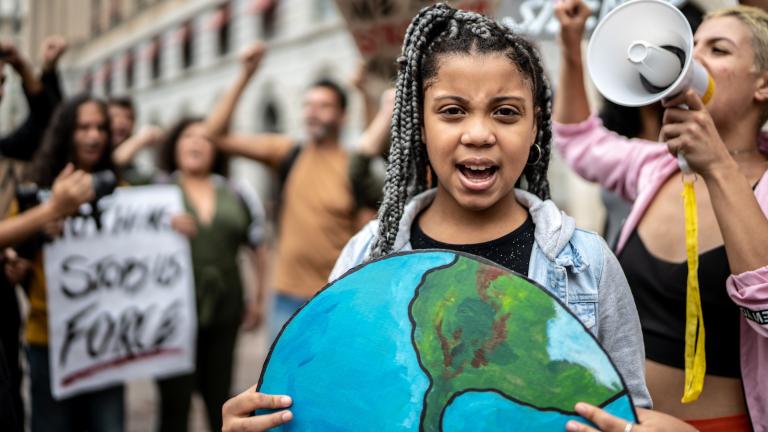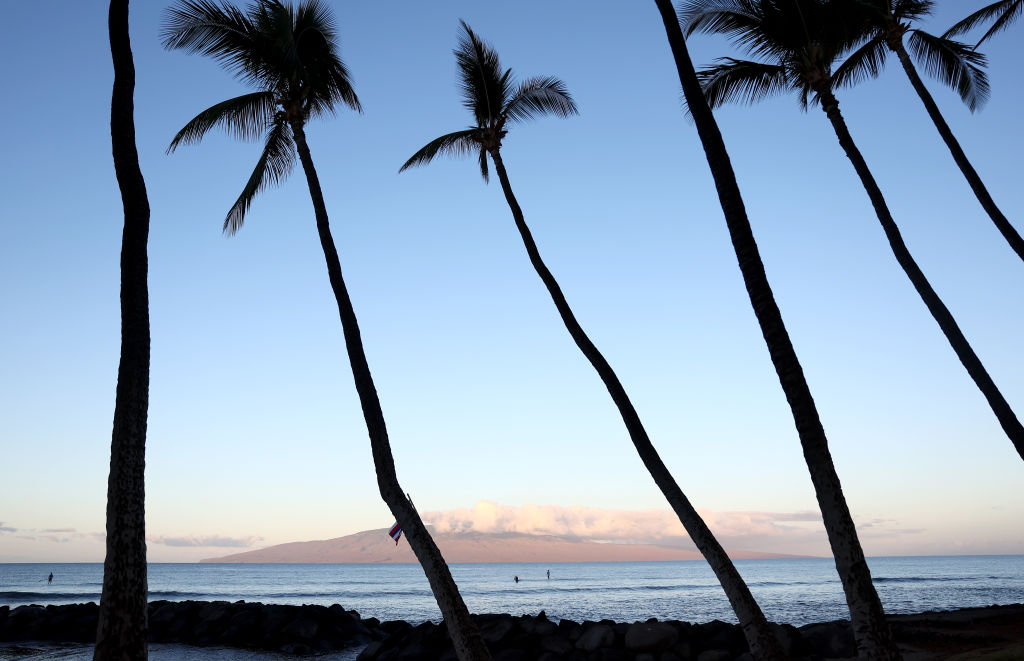The government of Hawaiʻi and a group of young people have reached a historic settlement that requires the state to decarbonize its transportation network. The agreement is the first of its kind in the nation and comes two years after 13 Hawaiian youth sued the state Department of Transportation for failing to protect their “constitutional right to a clean and healthful environment.”
The settlement, announced last Thursday, requires the department to develop a plan and zero out greenhouse gas emissions from all transportation sectors by 2045. The agency is also required to create a new unit tasked with climate change mitigation, align budgetary investments with its clean energy goals, and plant at least 1,000 trees a year to increase carbon absorption from the atmosphere.
“It’s historic that the state government has come to the table and negotiated such a detailed set of commitments,” said Leinā‘ala L. Ley, a senior associate attorney at Earthjustice, one of the environmental law firms representing the youth plaintiffs. “The fact that the state has … put its own creativity, energy, and commitment behind the settlement means that we’re going to be able to move that much quicker in making real-time changes that are going to actually have an impact.”
According to a press release from the office of Hawaiʻi Governor Josh Green, the settlement represents the state’s “commitment … to plan and implement transformative changes,” as well as an opportunity to work collaboratively, instead of combatively, with youth plaintiffs, “to address concerns regarding constitutional issues arising from climate change.”
“This settlement informs how we as a state can best move forward to achieve life-sustaining goals and further, we can surely expect to see these and other youth in Hawaiʻi continue to step up to build the type of future they desire,” Green said in a statement.
The 13 teenagers who brought the suit, Navahine v. Hawaiʻi Department of Transportation, have cultural practices tied to the land. They are divers, swimmers, beachgoers, competitive paddlers, and caretakers of farms and fishponds. Many are Native Hawaiian. In the lawsuit filed in 2022, they alleged that the state’s inadequate response to climate change diminished their ability to enjoy the natural resources of the state. Since they filed, at least two plaintiffs were affected by the Lāhainā wildfire, the deadliest natural disaster in the state’s history.
Hawaiʻi has been a leader in recognizing the effects of climate change. The archipelago is battling rising sea levels, extreme drought, and wildfires among other climate calamities. In 2021, it became the first state in the nation to declare a “climate emergency” and committed to a “mobilization effort to reverse the climate crisis.” But the non-binding resolution did not translate directly into statewide transportation policies that reduced greenhouse gas emissions, according to the youth plaintiffs.
Between 1990 and 2020, carbon dioxide emissions from the transportation sector increased despite advances in fuel efficiency, and now make up roughly half of all greenhouse gas emissions in the state. The plaintiffs argued that the Hawaiʻi Department of Transportation is largely to blame. Instead of coordinating with other agencies to meet the state’s net-zero targets, it has prioritized highway construction and expansion. The agency operates and maintains the state’s transportation network in such a way that it violates its duty to “conserve and protect Hawai‘i’s natural beauty and all natural resources,” the plaintiffs noted.
Other similar constitutional climate cases are pending across the country. Our Children’s Trust, a public interest law firm that represented the Hawaiian youth with Earthjustice, has also brought cases against Montana, Alaska, Utah, and Virginia on behalf of young people. Ley said Hawaiʻi is a “great model” for other states to follow. “This settlement shows that these legal obligations have real effects,” she said.
The settlement requires the state transportation department to meet a number of interim deadlines and to set up a decarbonization unit. The agency has already hired Laura Kaakua, who was previously with the Hawaiʻi Department of Land and Natural Resources, to lead the unit. Ley said that they plan to monitor every report the agency publishes, submit comments, and educate their young clients on how they can stay involved.
“Often in the climate field, young people feel betrayed by their government,” Ley said. “But this settlement affirms for these young people that working with the government can be effective and that this is a way that they can make a difference in their lives and in the world.”
Editor’s note: Earthjustice is an advertiser with Grist. Advertisers have no role in Grist’s editorial decisions.




